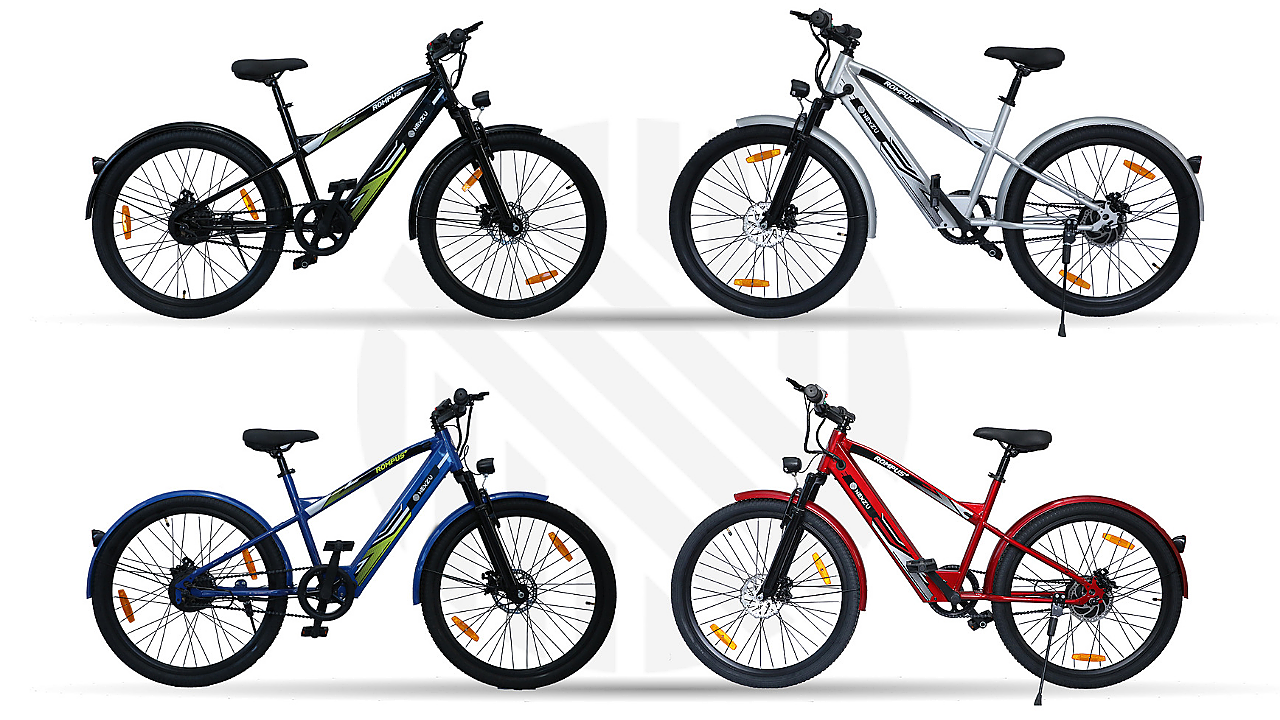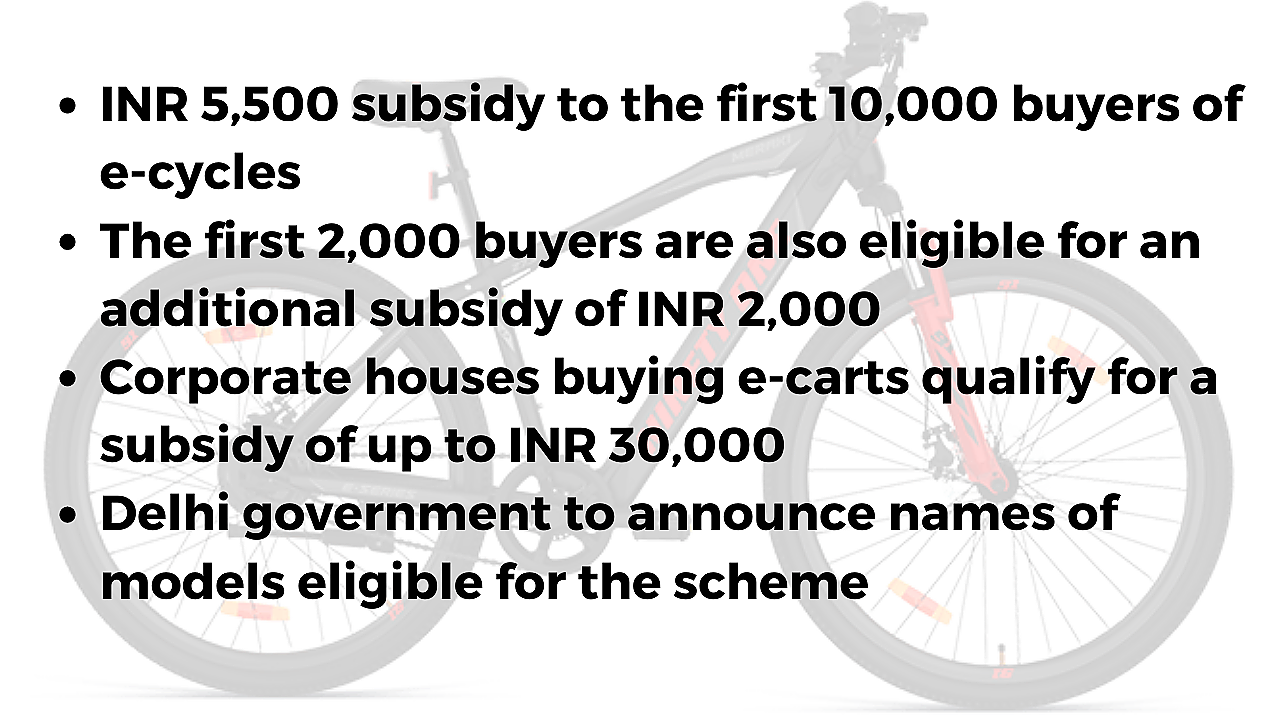
In a bid to push electric mobility to every segment of society, the government of Delhi had recently announced the inclusion of e-cycles in its electric vehicle policy. As a matter of fact, Delhi has become the first region in India to include bicycles in the electric vehicle incentives policy.
Arvind Kejriwal, Chief Minister, Delhi, tweeted, 'Congrats Delhi! Today we are taking one more important step in the fight against pollution. Delhi Govt's hugely successful e-vehicle subsidy policy is being enhanced with a subsidy for electric bicycles today. E-cycles will help Delhiites reduce the use of polluting vehicles.'
Both Kejriwal, and Kailash Gahlot, Minister of Transport, Delhi, claimed that Delhi reiterated the State's attribute of being the first to include e-cycles in the policy. The policy guidelines include provisions for incentives for the first 10,000 buyers of e-cycles.
The e-bike market in India, as per a Mordor Intelligence report, was valued at $ 1.14 million in 2021, and it is expected to reach $ 2.31 million by 2027, growing at a CAGR of 12.69% between 2022-2027. As per Persistence Market Research, revenue from the cargo e-bike market will increase 3X by 2031. The same was estimated to be in the range of $ 300 million (worldwide) in FY 2022.
E-cycles, Cargo E-cycles, E-carts
The Delhi government's plan around the new policy norms includes an INR 5,500 incentive each for the first 10,000 e-cycle buyers and INR 15,000 for the first five thousand buyers of cargo e-cycles. While e-carts were already included in the policy, the government of Delhi has now announced that the subsidy on the same (INR 30,000) will now be open to corporates as well. The new policy also entitles the first 1,000 buyers of e-cycles with an additional subsidy of INR 2,000.
The inclusion of corporates in the eligible list for subsidies on e-carts is seen as a game-changing move by the industry. This could be because of the fact that commercial e-vehicles are largely being regarded as the torch-bearers of the electric mobility segment in India. The problem, however, continues to be that no registration is required for e-vehicles that offer below 25km/hr capabilities.
Atulya Mittal, Founder Nexzu Mobility, said, 'It is encouraging to see the seamless initiatives being pursued by the Delhi state government to promote the agenda of sustainable mobility by easing the adoption of e-cycles, and expanding the sphere of subsidies extended to corporates, apart from individuals.'
The move may not mean a lot of opportunities for e-cycle makers as that kind of stock is already available in the market. It is also too early to say if the same drive long term adoption of e-bikes as the prices of electric scooters will come down in the long run. Some e-scooter makers are already offering variants that start from INR 70,000.
A good quality e-cycle, as per Jasmine Shah, Vice-Chairman of Delhi Dialogue and Development Commission, costs around INR 25,000- NR 30,000, while a cargo e-cycle is priced at around INR 40,000 to INR 45,000. Depending on build quality and capabilities, E-carts models cost INR 90,000 to INR 300,000.
Driving Green Kilometres
While the move by the Delhi government is aimed towards driving green km, it will also help the State in registering e-cycles, cargo e-ecycles, and e-carts that are capable of running below 25km/h speed. Right now, the law does not mandate registering electric vehicles that run at less than 25Km/hr speed. Hence, the new policy will help Delhi Government to register these as well because, to avail of incentives, the user should get these e-vehicles also registered with the government.
The same is not mandated to be done by the central or any of the state governments of India till now. The same is not mandated to be done by the central or any of the state governments of India till now.

Mittal added, 'The initiative will go well towards reducing the carbon footprint and push the usage of e-cycles among businesses like e-commerce, delivery services and aggregators, etc. The announcement will further pave the way for all other States to follow as electric cycles are the most affordable form of EVs and clean mobility while also enabling upward economic mobility.'
Gahlot noted that the government of Delhi has already disbursed INR 59.44 crore as a subsidy for e-vehicle buying. The government of Delhi unveiled the policy in August 2020. The transport department of Delhi had recently noted that the State had registered 139,945 e-vehicles till now. As per the department, Subsidies were provided to around 82,149 electric vehicle buyers.
The government of Delhi will be issuing the operational guidelines regarding companies and models qualifying for the scheme during the next two weeks. It's now a wait-and-watch game for e-cycle, cargo e-cycle, and e-carts OEMs and brands to ensure whether their products have been included in the list. Only people having Delhi's Aadhar card might be eligible for taking the subsidy benefits out of the new scheme.
It is worth adding here that Delhi residents buying electric vehicles become eligible to receive subsidies under both centre's FAME II and Delhi's electric policy. However, it is also not clear if the centre will be providing subsidies on e-cycles, e-cargo cycles and e-carts.
NB: Photo is representational; courtesy: Nexzu.